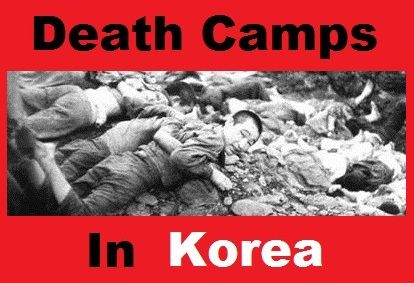
From Yahoo! News (source link): North Korea publicly acknowledged the existence of its labor camps for the first time Tuesday, an admission that appeared to come in response to a highly critical U.N. human rights report earlier this year.
Diplomats for the reclusive, impoverished country also told reporters that a top North Korea official has visited the headquarters of the European Union and expressed interest in dialogue, with discussions on human rights expected next year.
North Korea’s deputy U.N. ambassador Ri Tong Il said the secretary of his country’s ruling Workers’ Party had visited the EU, and that “we are expecting end of this year to open political dialogue between the two sides.” The human rights dialogue would follow.

BYPASS THE CENSORS
Sign up to get unfiltered news delivered straight to your inbox.
You can unsubscribe any time. By subscribing you agree to our Terms of Use
In Brussels, an EU official confirmed a recent North Korea meeting with the EU’s top human rights official, Stavros Lambrinidis, but said any dialogue currently planned is limited to rights issues.
Choe Myong Nam, a North Korean foreign ministry official in charge of U.N. affairs and human rights issues, said at a briefing with reporters that his country has no prison camps and, in practice, “no prison, things like that.”
But he briefly discussed the “reform through labor” camps. “Both in law and practice, we do have reform through labor detention camps â no, detention centers â where people are improved through their mentality and look on their wrongdoings,” he said.
Such “re-education” labor camps are for common offenders and some political prisoners, but most political prisoners are held in a harsher system of political prison camps.
The North Korean officials took several questions but did not respond to one about the health of leader Kim Jong Un, who has made no public appearances since Sept. 3 and skipped a high-profile recent event he usually attends.
The officials said they don’t oppose human rights dialogue as long as the issue isn’t used as a “tool for interference.” Their briefing seemed timed in advance of the latest resolution on North Korea and human rights that the EU and Japan put to the U.N. General Assembly every year.
The North Korean briefing concerned a lengthy human rights report it released last month in response to a U.N. commission of inquiry that concluded the authoritarian government had committed crimes against humanity. “We dare say that the case of human rights in the DPRK exceeds all others in duration, intensity and horror,” commission head Michael Kirby told the U.N. Security Council in April.
The report’s release in February put the North on the defensive. Its acknowledgement Tuesday of the reform camps, and its overture to the EU rights chief, were signs that Pyongyang now realizes the discussion of its human rights record won’t fade away, said Greg Scarlatoiu, executive director of the Washington-based Committee for Human Rights in North Korea. He said the mention of the reform camps was a first.
“While the North Korean human rights record remains abysmal, it is very important that senior North Korean officials are now speaking about human rights, and expressing even pro forma interest in dialogue,” Scarlatoiu said in an email. “The North Korean strategic approach to human rights issues used to be to simply ignore reports by international NGOs, government agencies or U.N. bodies. Human rights used to just go away, out-competed by nukes, missiles, and military provocations.”
While he called the acknowledgement of the reform through labor camps “a modest step in the right direction,” he said the greatest concern remains the North’s system of political prison camps that are estimated to hold 120,000 people.
The North’s own report on its human rights system accuses the United States and its allies of a campaign aimed at interfering in Pyongyang’s affairs “and eventually overthrowing the social system by fabricating ‘human rights issue’ of the DPRK to mislead international opinions,” its preface says.
Param-Preet Singh, a senior counsel for Human Rights Watch who attended the briefing along with a number of diplomats from other countries, said the significance of the event was that North Korea held it at all. The country used to be seen as “impervious to pressure,” she said.


